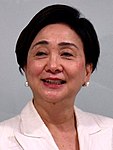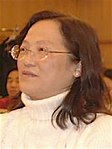
Back Βουλευτικές εκλογές του Χονγκ Κονγκ 2016 Greek Élections législatives hongkongaises de 2016 French Парламентские выборы в Гонконге (2016) Russian 2016年香港立法會選舉 Chinese 第6屆香港立法會選舉 ZH-YUE
| |||||||||||||||||||||||||||||||||||||||||||||||||||||||||||||||||||||||||||||||||||||||||||||||||||||||||||||||||||||||||||||||||||||||||||||
All 70 seats to the Legislative Council 36 seats needed for a majority | |||||||||||||||||||||||||||||||||||||||||||||||||||||||||||||||||||||||||||||||||||||||||||||||||||||||||||||||||||||||||||||||||||||||||||||
|---|---|---|---|---|---|---|---|---|---|---|---|---|---|---|---|---|---|---|---|---|---|---|---|---|---|---|---|---|---|---|---|---|---|---|---|---|---|---|---|---|---|---|---|---|---|---|---|---|---|---|---|---|---|---|---|---|---|---|---|---|---|---|---|---|---|---|---|---|---|---|---|---|---|---|---|---|---|---|---|---|---|---|---|---|---|---|---|---|---|---|---|---|---|---|---|---|---|---|---|---|---|---|---|---|---|---|---|---|---|---|---|---|---|---|---|---|---|---|---|---|---|---|---|---|---|---|---|---|---|---|---|---|---|---|---|---|---|---|---|---|---|
| Opinion polls | |||||||||||||||||||||||||||||||||||||||||||||||||||||||||||||||||||||||||||||||||||||||||||||||||||||||||||||||||||||||||||||||||||||||||||||
| Registered | 3,779,085 (GC) | ||||||||||||||||||||||||||||||||||||||||||||||||||||||||||||||||||||||||||||||||||||||||||||||||||||||||||||||||||||||||||||||||||||||||||||
| Turnout | 2,202,283 (58.28%)[1] | ||||||||||||||||||||||||||||||||||||||||||||||||||||||||||||||||||||||||||||||||||||||||||||||||||||||||||||||||||||||||||||||||||||||||||||
| |||||||||||||||||||||||||||||||||||||||||||||||||||||||||||||||||||||||||||||||||||||||||||||||||||||||||||||||||||||||||||||||||||||||||||||
| |||||||||||||||||||||||||||||||||||||||||||||||||||||||||||||||||||||||||||||||||||||||||||||||||||||||||||||||||||||||||||||||||||||||||||||
The 2016 Hong Kong Legislative Council election was held on 4 September 2016 for the 6th Legislative Council of Hong Kong (LegCo). A total of 70 members, 35 from geographical constituencies (GCs) and 35 from functional constituencies (FCs), were returned. The election came after the rejection of the 2016/2017 constitutional reform proposals which suggested the electoral method for the 2016 Legislative Council remains unchanged.
An unprecedented number of 2.2 million voters, 58 per cent of the registered electorate, turned out in wake of the 2014 pro-democracy Occupy movement often dubbed as the "Umbrella Revolution" with the localists emerged as a new political force behind the pro-Beijing and pan-democracy camps by winning six seats in the geographical constituencies and gaining nearly 20 per cent of the vote share.[2] Many new faces rose from the post-Occupy political forces got elected which was described as the "youthquake" by the media.[3][4] Demosisto's Nathan Law, a 23-year-old Occupy student leader became the youngest candidate to be elected in history along with his allies Lau Siu-lai and Eddie Chu.
Baggio Leung and Yau Wai-ching from the radical localist groups Youngspiration, and Cheng Chung-tai of Civic Passion, also won seats after they were allowed to enter the race following the government controversially disqualifying six localists for their advocacy of Hong Kong independence.[3] As a result, four pan-democrats lost their seats, namely, Neo Democrats' Gary Fan, as well as three veterans, Lee Cheuk-yan and Cyd Ho of the Labour Party and Frederick Fung of the Association for Democracy and People's Livelihood.
Many veteran pro-Beijing incumbents, including the LegCo president Jasper Tsang, also Chan Kam-lam and Tam Yiu-chung of the Democratic Alliance for the Betterment and Progress of Hong Kong's (DAB) and Chan Yuen-han of the Hong Kong Federation of Trade Unions (FTU) decided to step down, while pan-democrat heavyweights, including Civic Party leader Alan Leong, Democratic Party chairwoman Emily Lau and veterans Albert Ho and Sin Chung-kai, as well as pro-Beijing Liberal Party honorary chairman James Tien, chose to stand as second candidate to get their party's newcomers elected. Young Democrat Kwong Chun-yu received the most votes by winning nearly 500,000 votes in the District Council (Second) "super seat".
Together with the six post-Occupy radicals and localists, the anti-establishment forces won 29 out of 70 seats; managed to retain the majority in the geographical constituencies to block the pro-establishment camp's attempt to amend the rule of procedures to curb radicals' filibustering, as well as the opposition's crucial one-thirds minority to maintain the veto power on government's constitutional reform proposals.
These were the last fully free elections to be held in Hong Kong prior to the national security law that was implemented in 2020.
- ^ Progressive Turnout Rate in Geographical Constituencies. Elections.gov.hk. Accessed on 26 September 2017
- ^ Cite error: The named reference
localistswas invoked but never defined (see the help page). - ^ a b "Profiles in victory and defeat: a look at a few notable Legco winners and losers". South China Morning Post. 5 September 2016.
- ^ "Hong Kong 'youth-quake' alarms Beijing with push for independence". The Times. 9 October 2016.[permanent dead link]
Cite error: There are <ref group=n> tags on this page, but the references will not show without a {{reflist|group=n}} template (see the help page).










